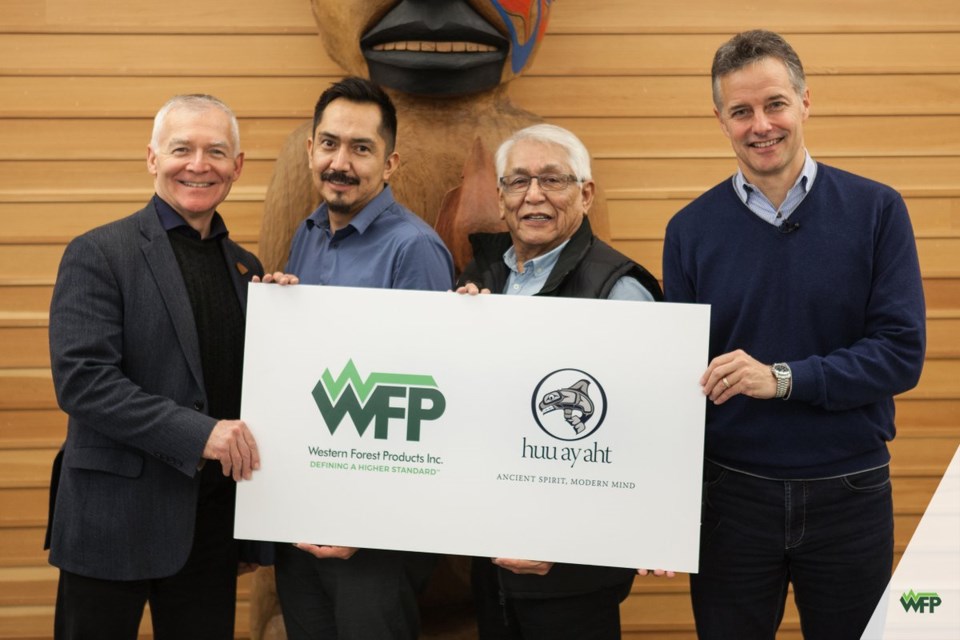When the news came out this week that an Alberni region First Nation had bought controlling interest in a big tree farm licence, my mind went in an odd direction.
For some reason, I flashed back to the Alberni Indian Residential School, which became notorious over the years as the truth slowly emerged.
For some of the students who attended — or were confined there — it was little more than a rape camp.
That’s where Arthur Henry Plint — the name still sends chills — spent years doing unspeakable things to little boys, along with others. It was at his sentencing for 18 counts of indecent assault (just a scant sampling) that the judge pronounced the “Indian residential school system was nothing more than institutionalized pedophilia.”
I thought about writing an article on the sale with some reference to the contrast between that dark history and the bright new tenure deal. But the linkage wasn’t clear. It didn’t feel like a forest industry business story that veered off into that old nightmare wouldn’t hang together.
Then I talked to Huu-ay-aht First Nation Chief Councillor Robert Dennis Sr., who will soon indirectly represent the controlling interest in a huge swatch of mid-Vancouver Island wilderness. He made it a little clearer.
Dennis spent 12 years in that school.
“It was horrible, the most terrible years of my life,” he recalled. Hundreds of little children went through the school in its various forms over the decades. Even if they escaped Plint’s notice, many had a terrible experience.
Most of them coped with it very badly. Dennis struggled as well. He is now of the view that the past is past and it’s better to look forward, not back.
Dennis talked about how the school worked to strip them of their Indigenous pride and spirituality, and how he regained it and relies on it to this day.
“It’s an ugly past but we need to move away from that and look to the future.
“I wouldn’t wish what happened to me on my worst enemy,” he said. He tried to avoid dwelling on it and relied on his own culture to work past it.
“I achieved good results.”
But his memories are still quite clear. One of them is of a boy at the school who couldn’t stand it any more and ran away. He lied about his age and hired on at a nearby logging camp. He put it behind him and worked his way out of that dark past, turning to the forest industry. Recounting that memory, Dennis was attuned to the same vibration.
The Huu-ay-aht buy-in to Western Forest Products’ tenure and a sawmill not far from where the school stood echoes that story in some fashion.
The band already had a fractional ownership of the tenure for that chunk of wilderness. Now it has 51% control of the partnership holding the rights. It could be the basis for working past a bad collective memory.
It’s an encouraging deal, but also a complicated, challenging one.
“The ever-shrinking” TFL 44, as Western Forest Products once described it, stretches along the Alberni Canal to the west coast, from Walbran in the south to Strathcona Park in the north.
But the annual allowable cut is a fraction of its former size, mostly because so much timber is protected and also because of treaty settlements.
TFL 44 is the bureaucratic name of the main battleground in the “war in the woods.” It’s been held by four big forest companies over the decades.
WFP gets $35 million for the share it’s handing over, and also divests a lot of responsibility for the headaches that come with the tenure.
The firm also sold 7% ownership of the Alberni Pacific Division sawmill on the Port Alberni waterfront for another $1 million.
The same hopeful reconciliation theme applies there.
But the giant mill site is decades old, needs upgrading and operates on a curtailed schedule. And it needs the nearby pulp mill to stay viable, in order to consume its chips.
WFP CEO Don Demens is as optimistic and enthusiastic as Dennis about the deal.
If they stay that way over the long haul it could write a new chapter to a sad story.



